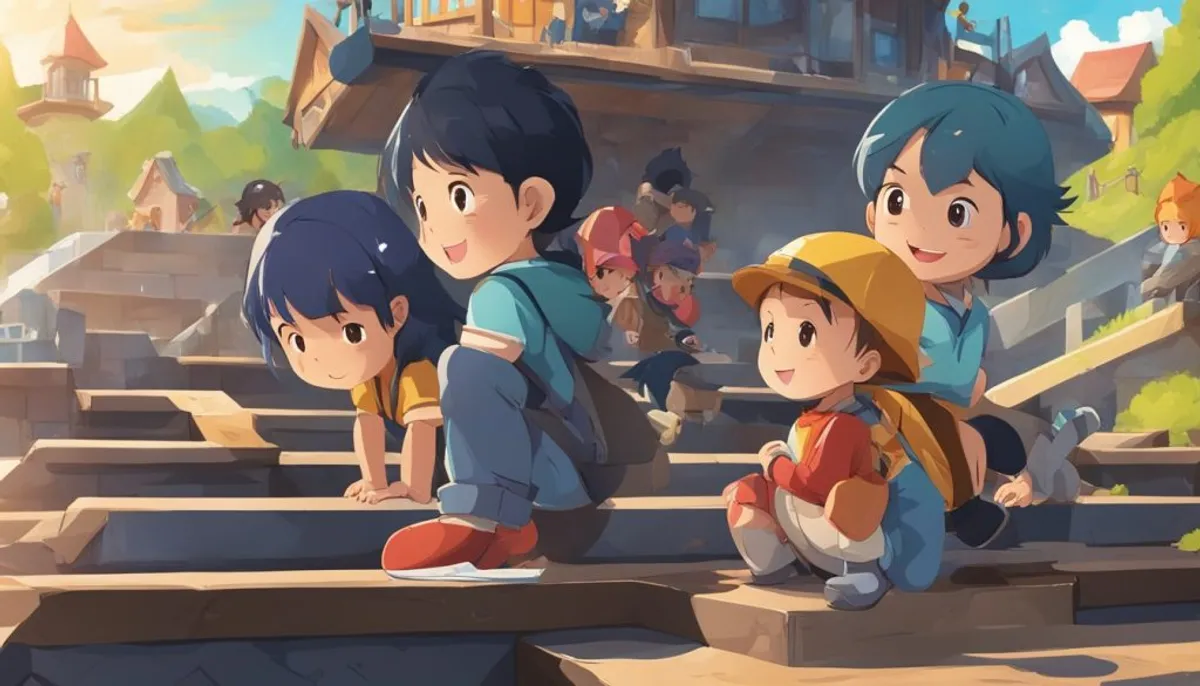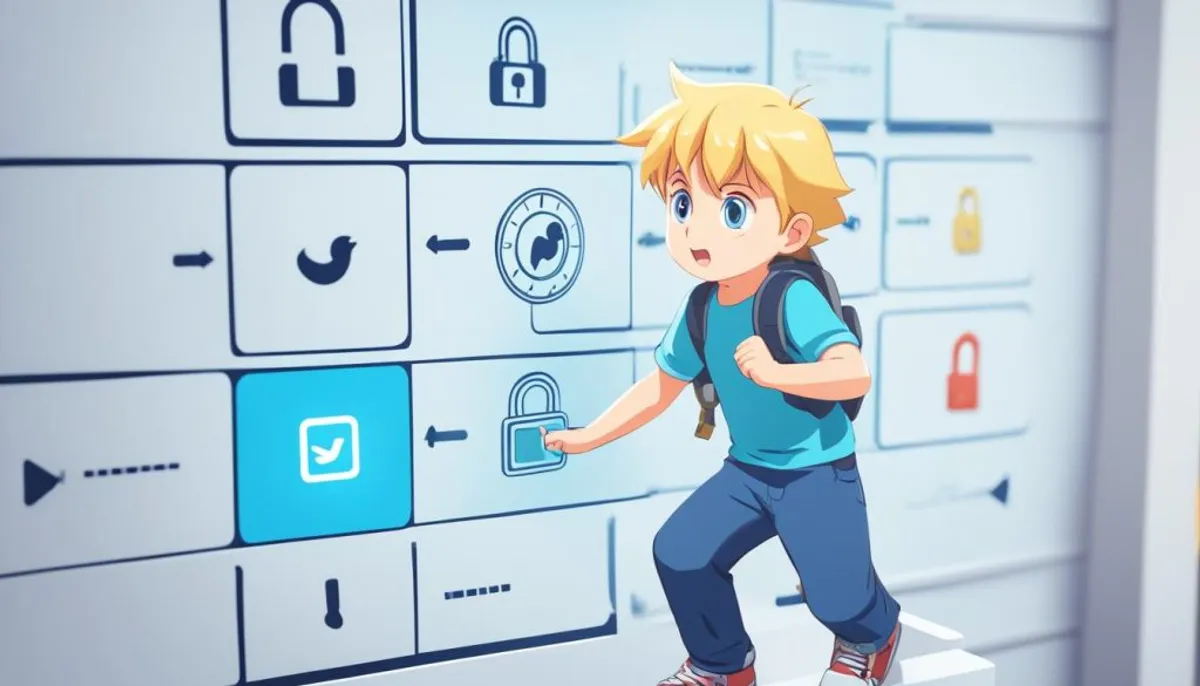A recent school shooting in Perry, Iowa, has led to talks about ways to keep kids safe. Some suggest kids under 18 should have less social media time. This is because more and more teens are facing problems. They deal with thoughts of hurting themselves and feel a lot of stress because of social media. Keeping teens safer and healthier is the goal. This includes having big tech companies do more to help.
Key Takeaways
- Social media age restrictions aim to ensure online safety for minors by preventing exposure to inappropriate content and cyberbullying.
- Compliance with legal regulations, such as data privacy laws, is a crucial factor behind age restrictions on social media platforms.
- Cognitive development and digital literacy are important considerations, as children under 12 may struggle to fully comprehend the impact of their online actions.
- Protecting personal information and mitigating social media-induced stress are key reasons for implementing age restrictions.
- Parental guidance, community support, and legislative changes are essential to creating a safer digital environment for young people.
The Significance of Age Restrictions on Social Media
Putting age limits on social media sites helps keep kids safe online. It lets parents talk to their kids about the digital world. They can discuss how to be safe, follow the rules, and keep personal info and laws in mind. This way, kids can learn how to avoid bullies and bad people online.
Ensuring Online Safety for Minors
Age rules on social media protect young users. Parents can teach kids the right way to act online. They use tools and skills to explore the internet safely.
Preventing Cyberbullying and Online Predators
Age limits make the online world safer for kids. They avoid bullies and bad people. Kids learn to think and act smart online, making their online time better.
Compliance with Legal Regulations
Following age rules meets legal standards. It includes laws like the General Data Protection Regulation (GDPR) and the Children’s Online Privacy Protection Act (COPPA). These laws protect kids’ data and make sure ads and content are safe for them.

Cognitive Development and Digital Literacy
Learning to be smart online means understanding how our brains develop. By age 12, kids usually fully get abstract thinking. Before that, figuring out right from wrong can be hard.
Adolescent Brain Development and Abstract Thinking
Kids get better at thinking as they grow up. They learn to think abstractly. This means they can see things from others’ points of view and make good choices online. Setting age limits on social media keeps kids from seeing harmful stuff.
Fostering Responsible Online Behavior
We need to teach kids to be responsible online. They should learn how to use the internet right. This helps them treat online spaces well and keeps them safe.
Parental Guidance and Community Support
Parents and the community play big roles in keeping children safe online. Using parental controls and talking openly helps kids understand the internet better. There are also programs that help teach kids how to be good digital citizens.

| Key Factors in Cognitive Development and Digital Literacy | Impact on Online Behavior |
|---|---|
| Adolescent Brain Development and Abstract Thinking | Ability to understand the consequences of online actions and consider the perspectives of others |
| Fostering Responsible Online Behavior | Empowering youth to navigate the digital world with empathy, critical thinking, and a strong ethical foundation |
| Parental Guidance and Community Support | Promoting open communication, digital citizenship, and digital literacy to cultivate a culture of responsible online behavior |
Why Does Social Media Have Age Restrictions?
Social media places age limits to keep kids’ info safe. Breaking these rules lets companies see young users’ activity. This can be unsafe, as it might expose children to things they’re not ready for.
Protecting Personal Information and Privacy
Social sites use age checks to keep kids away from risky content. Bypassing these checks can lead a child to see something harmful. Keeping to the rules helps make the internet safer for kids.
Avoiding Inappropriate Content Exposure
The online world has things that are not good for young people to see, including online predators. Sticking to age limits on social media can shield kids from such content. It aims to keep their minds and hearts safe.
Mitigating Social Media-Induced Stress
Spending too much time online can make kids feel bad and alone. By using age limits, social media tries to be a positive place. This is done by setting rules and watching out for harmful ads or content.
Conclusion
Age limits on social media aren’t about stopping kids from talking online. They’re about making the internet safer. This is a big step to help our young people stay safe online. It needs parents, community, and laws to work well together.
Pushing for new laws means making the web a better place for kids to learn and grow. It’s a must to keep them safe from the bad parts of the internet. With everyone’s help, kids will have a safer time online.
Having rules on who can use social media is a chance for kids to learn to be wise online. Together, we can help them be smart and safe on the web. This is how we can build a brighter future for everyone.
FAQ
Why do social media platforms have age restrictions?
Social media platforms have age limits to keep kids safe. They stop kids from seeing bad stuff. These rules also protect kid’s info and help them not get too stressed from social media.
How do age restrictions on social media ensure online safety for minors?
The rules keep kids away from cyberbullying and bad people online. They make sure kids’ personal info is used right. These rules follow laws that protect children online.
How does cognitive development impact the need for social media age restrictions?
It takes until around 12 years old for kids to fully think about their online actions. This is because it takes time for kids to really understand things. So, they might not get how their online choices can matter before this age.
Kids need their parents and community to help them understand online safety. This is more important before they are 12. After this age, they can often think more clearly about what they do.
What are the key reasons for social media age restrictions?
Age limits help hide kids’ info and stop them from seeing bad things online. They also help keep kids from getting too stressed by social media. Parents and laws play a big part in keeping the web safe for kids.
RelatedRelated articles



